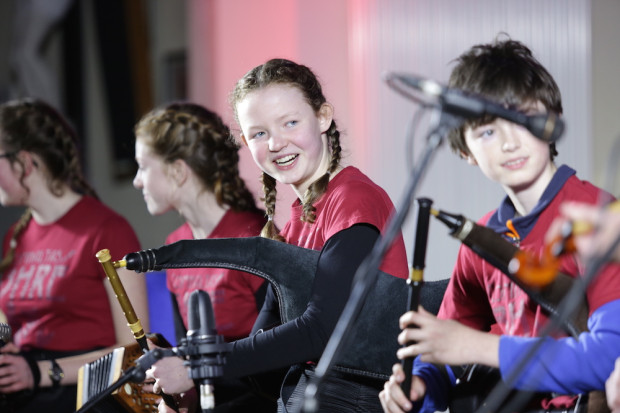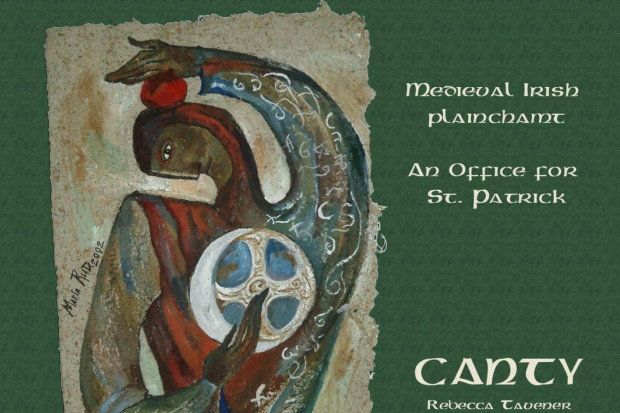A Voice for Music in Ireland
Talking shops and pressure groups are common enough in Irish society. The political world has used them for centuries, but it is only in the last fifty years that they have become a real force in Irish music. One of the first and most successful was the Music Association of Ireland, still with us though no longer the central force it was in the 1950s and 1960s. Its championing of a concert hall under the remarkable guidance of the late Dr Olive Smith nearly achieved its aim and led to the then Government’s announcement of the John F. Kennedy Memorial Hall in 1964, with a building cost of £2.6 million. Plans were ready by 1969, but the Government began to lose interest in the assassinated President, or spending money on the arts, and the project was finally scuppered by Ritchie Ryan in 1974 in favour of the refurbishment of Earlsfort Terrace.
Apart from providing an adequate national concert hall, there have been many other requirements needing a concerted effort among the various organisation involved in music. In 1999 a number of concerned individuals felt it was time to try to draw together the various interests once again, to attempt to create a single organisation which, without in any way debasing the work of the individual groups, would provide a centralised facility for the development of music. It could give consideration to how a concerted strategy might break down the barriers of indifference at political and state level. It could also explore new issues as they arose, making certain that everyone was pulling in the same direction. From the start it was felt that all forms of music should be represented – traditional, classical, jazz, contemporary, popular and rock – giving all equal consideration. In the event, many of the major issues were of common concern: musical education, development of audiences, extending music into the community, examining arts legislation and the like.
The Music Association continues to be an active force; other organisations include the Music Education Action Group, an ad hoc get-together with its focus on educational matters, particularly through schools, and MEND (the Music Education National Debate) under the stewardship of Frank Heneghan has undertaken an immense study of progress in and the needs of music education since 1994, stimulated by the lack of progress following the seminal report Deaf Ears?, commissioned by the Arts Council in 1985 from Donal Herron. Music Network has also extended its activities, bringing its considerable expertise to bear on important musical issues.
To try to tackle these issues the Forum for Music in Ireland was set up in June 1999 as an umbrella body with two principal aims: 1) To create an active network of those interested in music in Ireland; 2) To give a voice to music in Ireland and to influence action in support of it.
Its inaugural meeting in Limerick in June 1999 put together an initial six-member council: Chairperson Dr Joseph Ryan, then of the Army School of Music and now Registrar of the Athlone Institute of Technology, Eve O’Kelly of the Contemporary Music Centre, Nicholas Carolan of the Irish Traditional Music Archive, Gerry Godley from the Improvised Music Company, Tom Munnelly, Department of Irish Folklore, UCD, and Agnes O’Kane of the Irish Association of Youth Orchestras.
It was decided to hold two plenary sessions a year, one in Dublin and one elsewhere in Ireland and to date meetings have been held in Limerick, Galway, Portlaoise and in several venues in Dublin. The Spring 2002 meeting, the Forum’s first two-day session, took place in the Model Arts and Niland Gallery, Sligo, and this Autumn’s Plenary Meeting is at the RDS, Dublin, on Friday November 8th.
The Forum now has some 85 members, most of them representative organisations, festivals, educational establishments at second and third level, Local Authority arts officers, performing groups and music libraries. Membership is open to individuals and organisations, professional or amateur, working in or concerned with music in Ireland. Current annual subscriptions are _35 for individuals, _70 for voluntary organisations and _140 for funded organisations.
The danger of creating yet another talking shop without any real power to affect the future has been a major concern to the Forum. However, this time a number of elements would seem to point to the emergence of a more effective and meaningful ensemble. ‘Evolution’ is a key term; one cannot just bundle together individuals and organisations, no matter how dedicated to the improvement of music in Ireland they may be, and expect smart solutions to emerge without any problems. People have to learn to share experiences and knowledge, they have to look for the common interest, so that strength of numbers and musical authority will have a meaningful impact on those holding the purse strings or shaping the legislation.
On a personal note I have seen a remarkable growth in consensus over recent plenary sessions. For a time, it seemed that partisan politics might interfere with the large task of identifying and pursuing the issues of common interest. More recently there seems to have been a much greater spirit of pulling together and of tackling problems of common concern, where proper lobbying will have a meaningful impact.
So far the Forum’s main tool has been in the form of reports. In May 2001 a submission was made to the then Minister for Education and Science on the proposed Irish Academy for the Performing Arts. The report noted that ‘the establishment of the Academy and the appointment of a President is imminent, although public information and consultation with interested parties has been minimal and serious questions surround the manner in which the institution is to be constituted or funded’. Apart from a formal acknowledgement from the Department, neither Michael Woods nor his successor has bothered to respond to the document. The concerns expressed will need to be addressed if this project is ever to take flight. The Government has gone on blindly, however, appointing a Chairperson and Board and giving all the signs it will plough on regardless. This is tantamount to suicide, as the very people the IAPA would need are those who are making the loudest noises about its basic faults. The Royal Irish Academy of Music, for example, has withdrawn from the scheme completely, taking away one of the three legs on which the project seemed to be poised. When one leg of a tripod goes the usual result is it simply falls over. However, with the perilous state of finances and the demise of the ‘Bertie Bowl’ it would seem that the project’s likelihood of survival is now in serious doubt. The Report also asked: ‘Given that exceptional musical talent can manifest itself and require nurturing at a very young age, how will such a demand be accommodated by a dedicated third-level provider of the type proposed?’. In other words, a student entering university to study medicine or German neither expects nor needs to have the same teachers in college as in school, whereas a music student, particularly a gifted one, usually stays with a teacher right through all levels of tuition. There were also questions as to why, having provided the Cork School of Music with a _58 million grant, which will make it one of the most advanced music learning environments in Europe, there should now be a need for another third-level facility largely duplicating the musical part of the Cork scheme.
Overall, in a terse and succinct document, more than twenty basic questions were raised and remain both unanswered and probably unanswerable, given the Government’s intransigent attitude and inexplicable unwillingness to listen to the very people who will make or break this project. Also last year, the Forum presented Dr Woods with a damning report on ‘Music in the Primary School’. There is little need to rehearse the case here once again but the document looked at the roles of child and teacher and how the Department needs to address the many problems in teaching music to our young people. The Forum has also weighed into the debates on the Forum on Broadcasting and the forthcoming changes in arts legislation.
The Forum’s next Plenary Session takes place at the RDS Ballsbridge on Friday, November 8th, starting at 10.30am and running to about 4.00pm. The main topic will be that of music in the community but the matter of the Arts Plan 2002 – 2006 and the Arts Bill 2002, held over since the general election, will also be addressed. Anyone can attend this event but first make contact with the Administrator, Aisling White, at forum [at] cmc.ie or telephone her at 086-321 9644.
Published on 1 November 2002
Ian Fox wrote his first criticism for the Irish Times in 1969 and has been music critic of the Sunday Tribune since 1988. He is Irish correspondent for Opera (London) and Opera Canada, and is a member of the Critics' Circle, London. He founded and edited the first Irish classical music magazine, Counterpoint, in 1969. He is a Governor of the Royal Irish Academy of Music and a Council member of the Wexford Festival.














